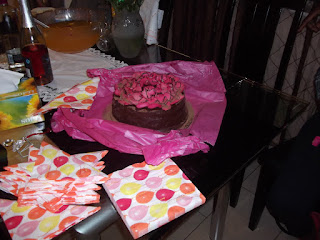
Last week I went to the movies with my mother and against my better judgment I chose to see The Help. The reason my judgment was against seeing this film was not because I thought it would be bad but because I knew it wouldn’t be of the quality as the novel from which it is adapted by Kathryn Stockett (2009).
Yes, the story of The Help has stirred some controversy concerning the acknowledgement or the lack there of, that was given to the contributors of the stories. None the less, the book is written in the voices of three of the characters which makes it that much more intriguing, it really is a page turner. It is written with such awesome detail of which very little is captured in the film, I don’t even think that the deep southern accent detailed in the book is as thoroughly delivered on the big screen.
I never understand how films always manage to lose parts of the story that really embrace a lot of the essence of what is being told. How is it that the director decides to completely change certain characters, their appearance and the role that they play... it really upsets me.
Of course reading the book before watching the movie almost always guarantee’s that the pictures you’ve conjured up in your own head will most probably be shot to hell and gone and even some of the scene’s you’re most excited to see, you’ll be lucky enough to have a fraction of it retold.
The story told is based on the well known race tale of the 60’s before and during the civil rights movement. Stockett however, focuses particularly on the story of the black maid, the white master and the unspoken of truths that existed between the two. It tells the tale of these average people who had a lot to fear, that decided to relate the day to day stories of their average lives, stories that were honest to their thoughts and feelings , stories that were in many ways the same as their comrades but that were still their own.
There are however things that the film does for one’s emotion that the book doesn’t quite manage. Bringing to life some of the emotion that is experienced while reading. The film allows you a more vivid understanding of the relationships that existed between white and black people in the south and particularly in Jackson Mississippi, a town that was considered one of the most racist in the 60’s. The film explores the deeply intimate relationships that existed despite the blatant hatred and hurt that was consistently inflicted. It explores and creates an understanding of the self conflict and immense confusion experienced by the children of white families who were brought up and loved by the very people they were meant to hate. It scrutinises the inconsistency that was present in the way that white people treated black people and the appreciation that a lot of them felt and even sometimes displayed toward black people.
So the book vs the movie? You have to appreciate the moments in the film of humour, hurt, vengeance and love that the actors bring to the characters but it could definitely have given a lot more attention to the detail that Stockett achieves in the novel.





